Meet an Educator is a monthly series by Early Bird, where we feature the work of educators across India who are actively spreading the joy of birds and nature. This month’s featured educator is Kiran Bagade, a freelance naturalist from Nanjangud, Karnataka. Everything about birds excites him!
Do tell us about yourself, where you are from, and your work
I am from the temple town of Nanjangud, which is 25 km away from Mysuru. I am currently located in Bengaluru for my work as a senior marketing analyst. I am also a rapper and a songwriter. Apart from talking about life around us, struggles, inspirations, and so on, I have also composed and sung rap songs on lake conservation to attract youth towards the conservation of lakes. I love to pen down poems in my native language, Kannada.
I like to trek, travel, and explore new places, meet new people, and get their attention towards the wonderful biodiversity that our country has! One of the best ways to achieve all these is by being a freelance naturalist, which again has a connection with birds. My first stint as a naturalist was when I guided participants during the first Karnataka Bird Festival.
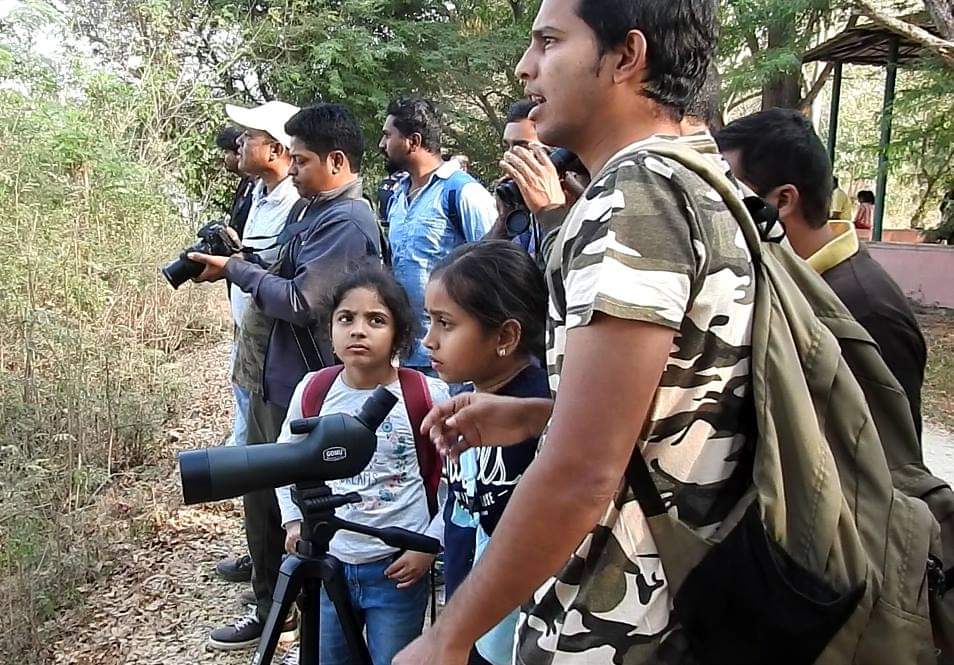
Are you a birder? What about bird watching excites you?
I am a birder. What started as “I’m going to identify as many birds and count as much as possible” has now evolved into “I’m going to sit and observe birds and their behaviour.” Everything about them excites me; just to be out there and watch them carry out their daily routine itself is a gift that mankind has received.
I love it when a raptor hovers, a wagtail just wags its tail, a swamphen chases another of its kind, when a coot runs on the water, or a pelican swoops in and carries water to give it to its newborn waiting in the nest. I can just go on and on with it! What also excites me is the travel part. I’ve visited different parts of the country just to watch different species of birds in their habitat. I don’t think I would have travelled to this extent if it weren’t for birds!
When and how did you get interested in bird/nature education?
I got interested in birds through my Uncle Shri Sheshagiri Bagade, who is an avid birder himself. Through him, I joined the informal group ‘Mysore Nature’, helmed by Shri Shivaprakash Adavanne. The group has existed for the past three decades and has introduced youngsters like me to the field of biodiversity.
My interest in nature education began close to a year or so after starting birding. Since then, I have been associated with numerous organisations in various capacities, trying to instil a sense of interest and awareness toward birds and other biodiversity in young minds and adults. I am currently a part of a collective called ‘Dharitri‘, through which a couple of like-minded individuals focus on nature awareness through outreach programs, eco-trails, treks, etc.
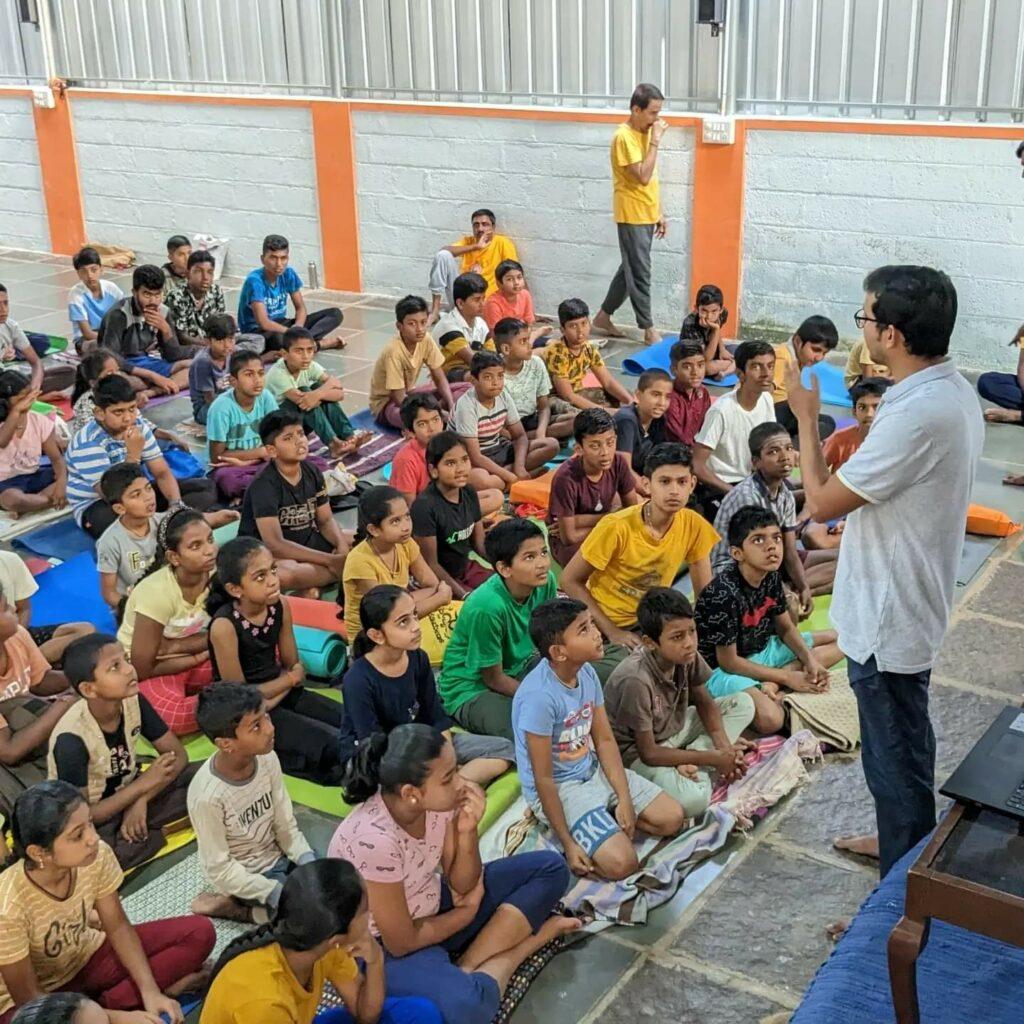
Photo credits: Kiran Bagade
What do you hope to achieve through your education work?
Though “catch them when they are young” has been rightfully said, I believe in “nature education for all.” As I got into this space when I was close to my 20s, I feel that anyone can be bitten by the bird bug at any age! I have learned a lot through the Nature Conservation Foundation and Early Bird in this regard and have implemented the teachings in the work I’ve been involved in independently. I just want to reach out to as many people as possible through nature education work, and whenever possible, collaborate with as many organisations as possible to reach out to a larger audience!
Why do you believe it is important for children to learn about birds or connect with nature?
We have a saying in Kannada: “ಬೆಳೆವ ಸಿರಿ ಮೊಳಕೆಯಲ್ಲಿ”, which means “to influence people when they are in their childhood”. If children are taught about birds, their behaviour, parental care, community feeding, etc., it will have a positive impact on the children. In addition, they will develop a sense of empathy towards their immediate surrounding environment.
Birds, being very common faunal diversity and easily spotted in the backyard, will surely create strong early childhood memories. From there, no matter which profession the children choose, they will have a sense of safeguarding places for birds.
Educating children about wild birds also helps dispel the notion that keeping them caged and cared for is the way to show love for birds. We missed out on a lot of things growing up during our schooling. I hope for more and more people to come forward, be passionate about nature education, and spread the joy of appreciating the biodiversity in their own backyards.
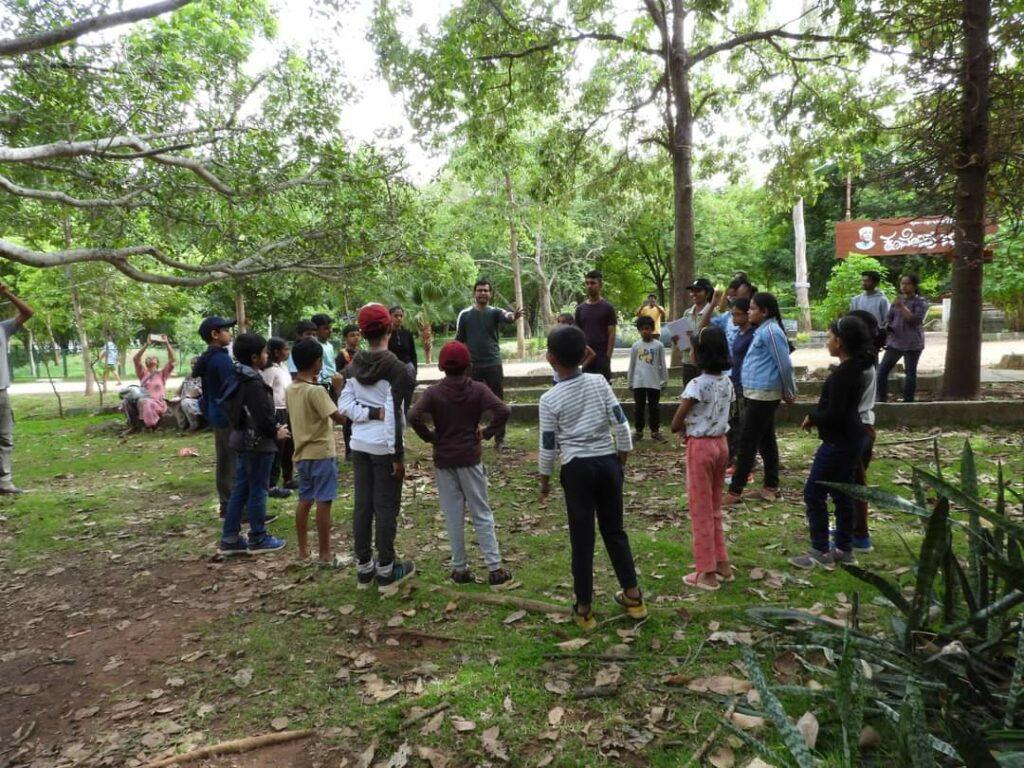
Photo credits: Kiran Bagade
What tools or resources have helped you in teaching about birds? Can you describe an approach that has worked exceptionally well for you?
There are various resources that have helped me teach about birds. Binoculars, spotting scopes, and cameras stand out as the best optical resources for the field. They are tools that help in getting the participants excited about birds as we can get up-close and personal. Secondly, a field guide helps in bird identification.
Apart from these, digital tools such as eBird and Merlin are something that I use, which help in documentation and identification. These are the standard tools that I feel most educators use, which immensely helps in getting more information on specific birds. The user interface is very friendly, and navigation is quick and simple on these two tools.
For outreach programs, I mainly use customised presentations that talk about the evolution of birds to conservation. The presentation varies based on the target audience. For children, I use activities that are more tilted towards the observation of behaviour and habitat of birds. Earlier, I used to focus purely on getting them interested based on identification. After a bird walk that happened in association with the Early Bird team in Mysuru, it completely changed my perspective. We used flashcards, memory games, etc., to get the children into fun learning mode.
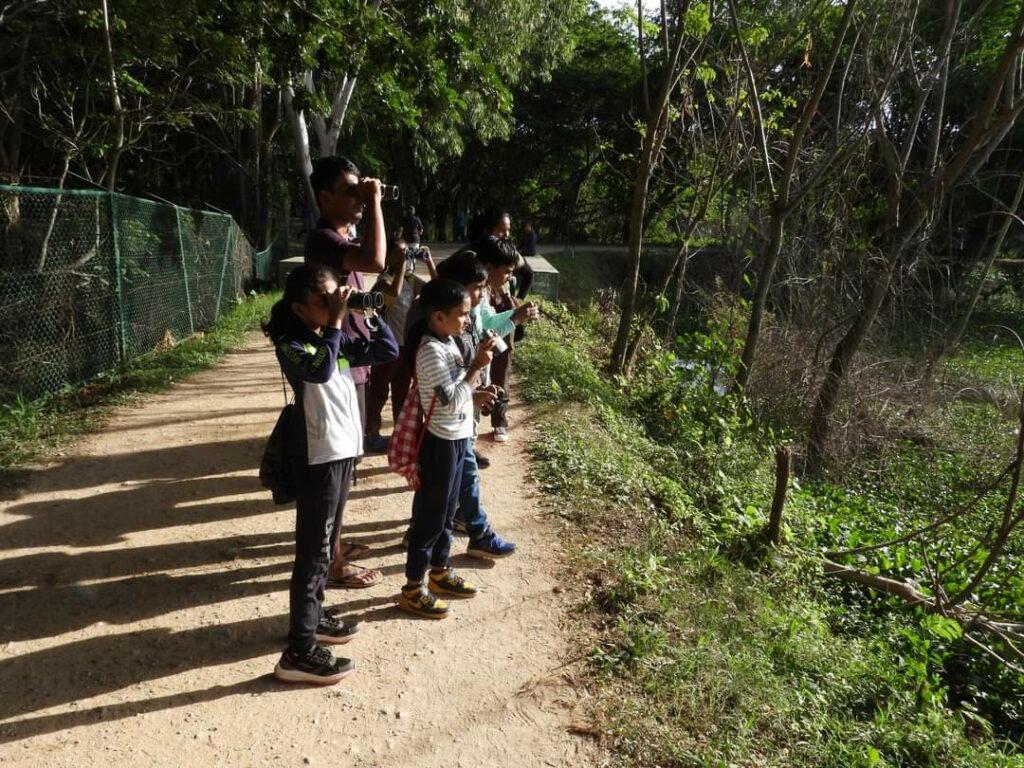
Have you encountered a significant challenge as a bird/nature educator, how did you overcome it?
I feel a little nervous about the safety of kids during walks in the field, especially around a lake environment. It makes the role of a nature educator a highly responsible one. To address this, we usually have multiple coordinators, at least four, at a ratio of one coordinator for every five children.
Secondly, when curating species-specific tours and workshops, marketing becomes a big challenge. It is an all-pervasive challenge, but because the space is a little niche, if people in the targeted city are not aware, then getting a good number of participants becomes challenging.
I feel there is a need to create a big pool of interested people in order to get the ball rolling. A bunch of us are in the process, and anyone who wishes to join hands is welcome. The whole idea behind it is that the platform should enable quality nature education programs, workshops, and events for interested people.
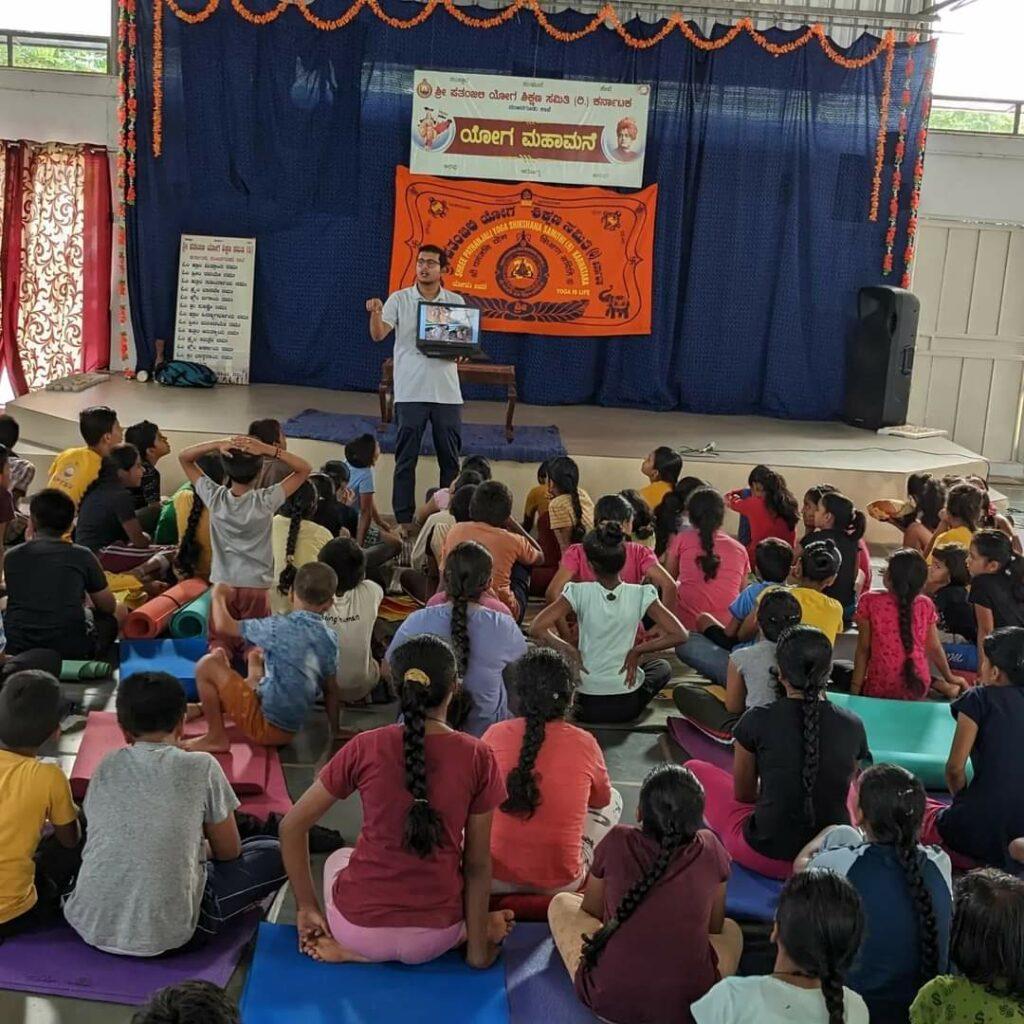
Photo credits: Kiran Bagade
Do share any memorable moment or experience you have had in teaching kids about birds/nature. Can you recall any insightful instance that shaped your perspective?
One of the memorable moments was during a bird walk in Kukkarahalli Lake. We were mainly focusing on bird behaviour and habitat. All the children were sitting and observing birds, completely focusing only on the birds and noting down their behaviours.
We were at the end point of the event, and it was the last activity. We gathered for the final session, and the children were sharing the observations they had made. Right after we ended it, one of the parents came to me with her kid and spoke highly of the event. Out of all that she conveyed, she specifically pointed out this and said, “I’ve never seen my son sitting in one place. He is super active, and I’ve never seen him sit or stand in one place even for a second. Thank you so much for this. I am very happy that he sat down with patience and observed the birds.”
This actually made me realise the aspects that we are teaching without even realising the impact that we might have had. The memory is etched, and whenever I recall it, I think of how we, as nature/bird educators, can make a difference, small or big, personal or societal.
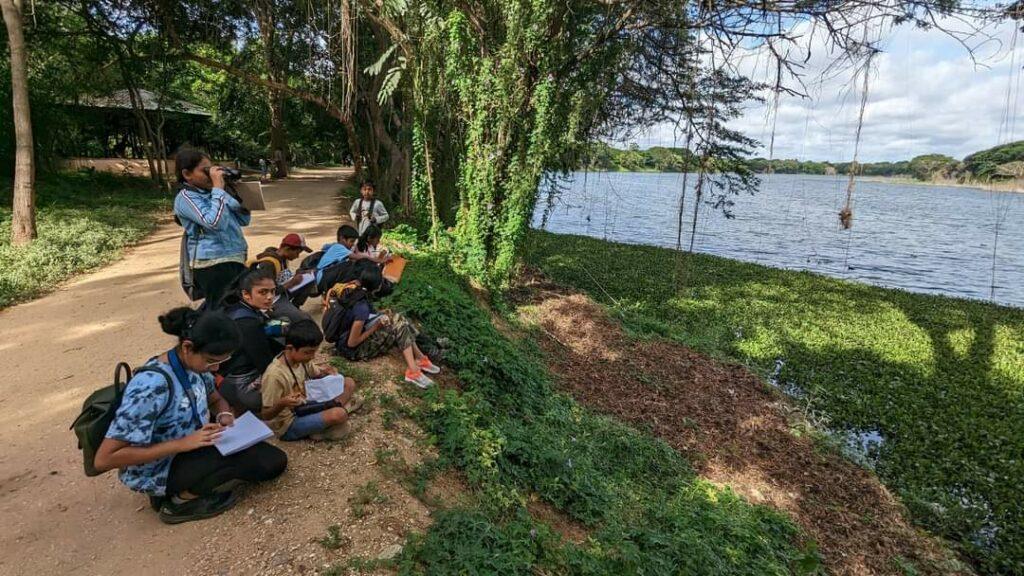
Photo credits: Kiran Bagade
Have you noticed any changes in your learners after they received exposure to birds and nature-based learning? If yes, what are they? If not, why do you think that is?
I’ve tried to introduce as many people as possible to birdwatching and to help them learn more about birds. A couple of my friends have really taken it up and started pursuing it as their hobby; now it has become their passion. They regularly contribute as citizen scientists by uploading checklists on eBird. They actively participate in surveys conducted by Mysore Nature and in other eBird events such as Great Backyard Bird Count (GBBC) and Big Bird Day. I haven’t been able to follow up and track the changes or measure the impact of the nature workshops or bird walks as such, but I will actively do that in the future.
What message would you have for your fellow educators, or somebody starting out in their nature education journey?
I would ask them to keep the learning curve alive. Take the inputs that are given by others positively. Always craft your sessions based on the target audience. Be nice, kind, and patient. I’m sure you will figure things out your own way! Don’t forget to have fun while doing it! Once it’s done, savour every bit of it because nothing can replace the joy of seeing children and their parents happy amidst nature, enjoying nature’s spectacles.

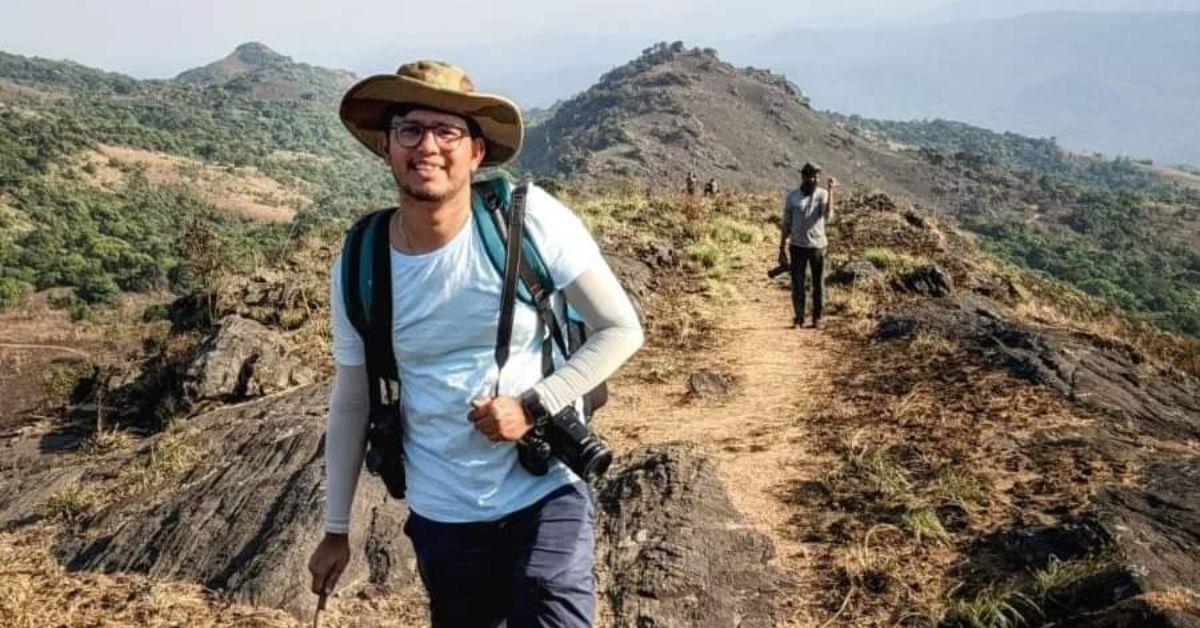
very good program conducted by kiran baagade sir. congratulations and keep it up sir…
Superb and inspiring! Wish you all the success Kiran Bagade..